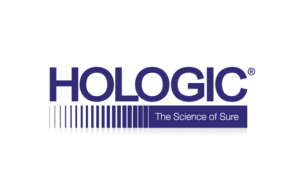 Hologic today announced that it acquired molecular diagnostic company Diagenode for $159 million.
Hologic today announced that it acquired molecular diagnostic company Diagenode for $159 million.
Through the deal, Hologic will pay $159 million, subject to working capital and other customary closing adjustments.
European Daigenode develops molecular diagnostic assays and epigenetic products. It has more than 30 real-time PCR tests that are CE-marked to detect bacteria, parasites and viruses in sexually transmitted infections, respiratory diseases, meningitis and gastroenteritis.
“Acquiring Diagenode further strengthens our molecular diagnostics business by expanding our international capabilities, improving our regional time-to-market, and allowing us to offer a broader, more differentiated test menu,” Hologic international president Jan Verstreken said in a news release. “Diagenode has been a great partner since 2016, helping us develop and manufacture PCR-based assays for Panther Fusion. Now we look forward to accelerating and broadening those efforts to benefit our customers and patients.”
Diagenode and Hologic previously collaborated to develop Hologic’s Panther Fusion assays for detecting streptococcus and bordetella.
“We are very pleased that the Diagenode team will become part of Hologic’s diagnostic business,” Diagenode founder and CEO Didier Allaer said. “Our businesses are highly complementary, and we are excited that Hologic’s commercial resources and leadership in molecular automation will enable us to offer our assay menu more broadly. Being part of Hologic will help scale our products to their full potential.”
Diagenode generated more than $30 million in revenue last year, according to the company. Hologic said the acquisition is expected to be approximately break-even to Hologic’s non-GAAP earnings per share through fiscal year 2022, and accretive after.
“We are excited to put our strong cash flow to work to acquire Diagenode and further strengthen our diagnostics business, which has had tremendous momentum in the United States and internationally,” Hologic president and CEO Steve MacMillan said. “The acquisition is consistent with our tuck-in M&A strategy, leverages our automation capabilities, and provides attractive growth potential. And combined with our recent purchase of Biotheranostics, it enables us to continue strengthening our base diagnostics business to accelerate growth post-COVID.”